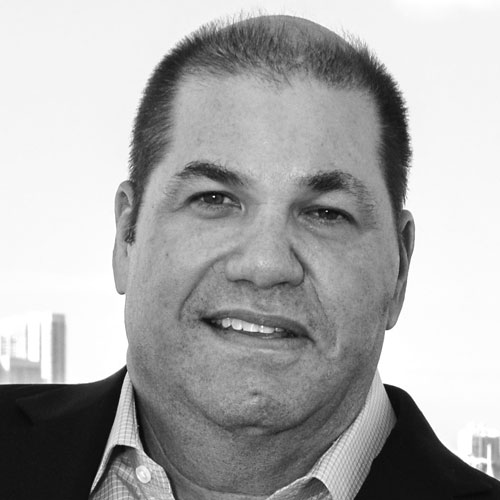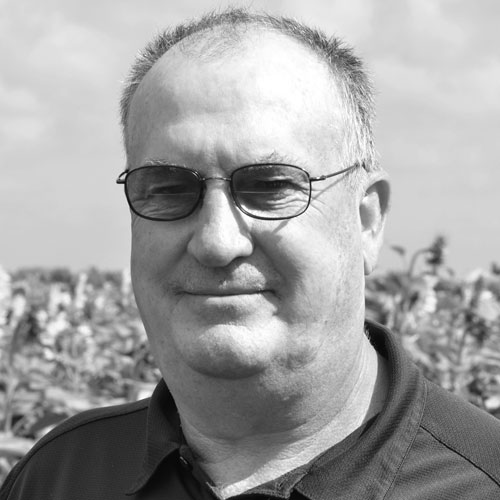Killing bugs is hard work, and at Rollins, it’s serious business. Rollins is the parent company to Orkin and eight related pest control companies. Together, the brands have more than 10,000 employees that serve more than two million customers in the United States, Canada, Central America, South America, the Caribbean, the Middle East, Asia, Europe, Africa, Mexico, and Australia. At Rollins, company culture emanates from business leadership. Henry Anthony is the group’s vice president of human resources. The human resources veteran has worked with his team to build a structure that supports that large group of employees while helping Rollins increase profitability and plan for the future. In doing so, he’s proving that pest control is a smart and viable career choice.
While Rollins is now a publicly traded company, it all started when brothers O. Wayne and John Rollins began a business partnership that was the beginning of Rollins, Inc. John operated car dealerships in Virginia, Delaware, and Maryland, and he and Wayne owned a growing portfolio of radio stations in the same area. They advertised John’s car dealerships on the Rollins stations. In 1964, Rollins Communications, as it was known then, purchased Orkin Exterminating Company, which already had 800 offices. In an unusual move, the small communications corporation acquired a larger company in a totally different industry, setting the stage for the amalgamation of other pest control outlets. Before the dawn of the 1970s, revenues climbed above $100 million, and the company would soon become the global leader in pest control.
Today, that status is firmly cemented by hundreds of company-owned and a few franchised Orkin offices around the world. As the organization’s human resources leader, it’s Anthony’s job to attract, retain, and develop the talent required to sustain and grow what has become a worldwide enterprise. To do so, he’s focused on the entrepreneurial spirit and family culture that helped start the corporation so many years ago. “Rollins Corporation is special because it’s publicly held but operates with a real family feel,” he says. “The values combine with the consistency and continuity of our senior leaders and board members to really give us a strong sense of culture and DNA.”
The Rollins family owns more than half of the company stock, and both the CEO and chairman are family members who have been involved with the company for their entire adult lives. Anthony says even outside senior leaders are closely aligned with the family’s philosophy, which he describes as one anchored by honesty and integrity that puts employees and customers first. That company culture drives Anthony’s human resources strategies. “A company is made up of people,” he says. “HR professionals have to be driven by the company’s values, and they have to balance what’s right for the business, shareholders, and customers.”
They must also have the expertise to know what levers to pull to maximize employee retention, engagement, and productivity to help the company meet business objectives. Anthony has spent more than thirty years building that expertise. After starting his human resources career at Pizza Hut, the Georgia native led teams at AHL Services and Veritas Consulting before joining Rollins in April of 2002. Those positions have taught Anthony the importance of knowing the business inside and out. Rollins is collaborative, blue collar, and straightforward. Its people are focused on not just job completion, but improving performance. Leaders are conservative and action-oriented. And since thousands of employees interact directly with customers in their homes or places of business, hiring the right people is critical.
Anthony and his colleagues in human resources have aligned the hiring process to the company’s needs. “We have to be extremely rigorous and diligent because we expect our employees to form those lasting, long-term relationships with our customers. That’s the core of our business.” Managers have to deal with internal customers in the same way, and model the behavior Rollins expects from company technicians that work in the field. Extensive background checks and drug testing (where legally allowed) are a start, but Anthony’s teams supplement these basic steps with advanced interview techniques, candidate observation days, and psychological testing.
In 2013, Orkin committed to hiring 1,000 military veterans by 2018 as part of the White House’s Joining Forces initiative. “Returning veterans transitioning to the private sector are very good cultural matches for our company, because we share a sense of team, the desire to serve, and a community-based culture,” Anthony explains.
The company is also focusing on another underserved community—women. While many blue-collar companies have a disproportionate mix of men and women, Anthony believes Rollins and Orkin have operational jobs and a work environment suitable for both genders and actively recruits women. “We’d be missing out on all the great talent that’s in the marketplace if we didn’t target women,” he says. “When you segment anything, when you only go after part of something, you’re sacrificing the bottom line. If someone matches our culture and our needs, I want them in this organization.” The strategy also makes sense from a business perspective, as research shows key decision makers when it comes to purchasing services in home and retail settings are women.
For all candidates and new hires, the onboarding process involves one of the best training programs in the country, as rated on Training magazine’s annual Top 25. In 2014, Orkin—the only pest control company on the list—earned a spot for the twelfth consecutive year. A revamped training process that includes role-playing and active exercises takes employees through comprehensive development, technology training, and a technical curriculum before a final exam and reports. Part of the program takes place at Rollins University—the company’s best-in-class, multimillion dollar, interactive training center. The resource-heavy and tech-laden program is repeatable and designed to engage employees early so they become productive Orkin advocates. Human resources’ work isn’t done after the initial process, though. Anthony’s teams are creating what he calls a “people P&L” through their talent management system. The files carry information on each employee, including career aspirations, willingness to relocate, and performance scores. Armed with that data, human resources professionals can complete succession planning and also help employees achieve their long-term goals.
Rollins’ decentralized business presents challenges that human resources must overcome. Surveys and town hall meetings with employees help department leaders reach technicians and solicit feedback, but Anthony relies heavily on regional managers that oversee between eight and fifteen branches. Those managers help integrate company culture at the local level. “Every manager is, in some way, an HR manager,” Anthony says. “Our role is to help them be more effective.” Each branch has around forty employees. Executives decided to keep things small to allow branch and service managers to develop close bonds with technicians, sales people, and office staff.
Anthony concedes that he’s seeing more changes than ever before during his long career in human resources, but believes new opportunities are arising. “Millennials may not expect to work at one company for thirty years anymore, but they still want to feel like they’re part of something important,” he says, adding that Orkin and Rollins provide that opportunity. Technicians interact with regular customers, build their own network, and help those customers improve their home or business environment. Amid the changes, human resources professionals at Rollins will look to adapt—but not abandon—their long-standing culture.
The pest control industry is trending up. According to the Bureau of Labor Statistics, US Department of Labor, employment of industry workers will grow 20 percent by 2022. In part, the report says that environmental and health concerns will result in more people hiring professionals, rather than trying to control pests themselves. Job opportunities should be very good.

